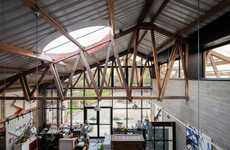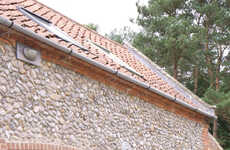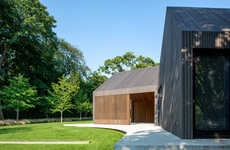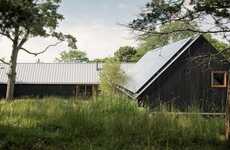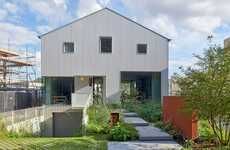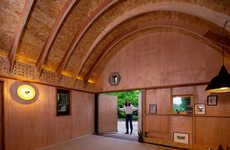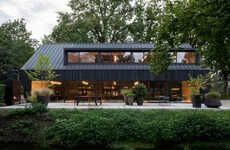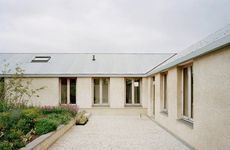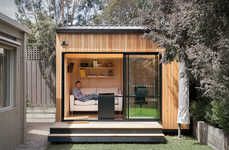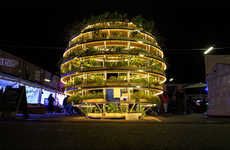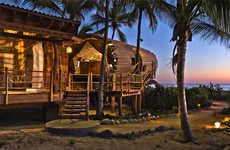
Church Hill Barn was a Red Brick Barn and is Now a Comfortable Home
Joey Haar — January 2, 2017 — Art & Design
References: davidnossiter & dezeen
Church Hill Barn, a home designed by David Nossiter Architects, is a contemporary home that adheres to the best aspects of conservation, both in terms of cultural and environmental conservation. The home, located in the English county of Suffolk, was once a simple red brick barn, but it has been repurposed in order to house a family comfortably.
Admittedly, barns are not the most comfortable living space (unless one happens to be a farm animal.) However, the barn has a cruciform shape that was the result of its original owner experimenting with alternative forms of farming, which prompted local officials to designate the space as a heritage site. Forbidden from tearing it down, David Nossiter Architects instead transformed Church Hill Barn into a spacious but comfortable living space for the clients who bought the property.
Admittedly, barns are not the most comfortable living space (unless one happens to be a farm animal.) However, the barn has a cruciform shape that was the result of its original owner experimenting with alternative forms of farming, which prompted local officials to designate the space as a heritage site. Forbidden from tearing it down, David Nossiter Architects instead transformed Church Hill Barn into a spacious but comfortable living space for the clients who bought the property.
Trend Themes
1. Conservation Architecture - Opportunity to repurpose existing structures and conserve cultural and environmental heritage through innovative architectural designs.
2. Adaptive Reuse - Exploring possibilities of transforming unconventional structures like barns into comfortable and functional living spaces.
3. Heritage Preservation - Creative approaches to preserve heritage sites and buildings while adapting them to modern living requirements.
Industry Implications
1. Architecture - Architects and designers can explore innovative ways to repurpose existing structures and conserve cultural and environmental heritage.
2. Real Estate - Real estate developers can consider adaptive reuse projects to transform unconventional structures into desirable and unique living spaces.
3. Historical Preservation - Organizations and professionals involved in historical preservation can implement creative strategies to repurpose heritage sites while ensuring their original value is maintained.
5.7
Score
Popularity
Activity
Freshness


